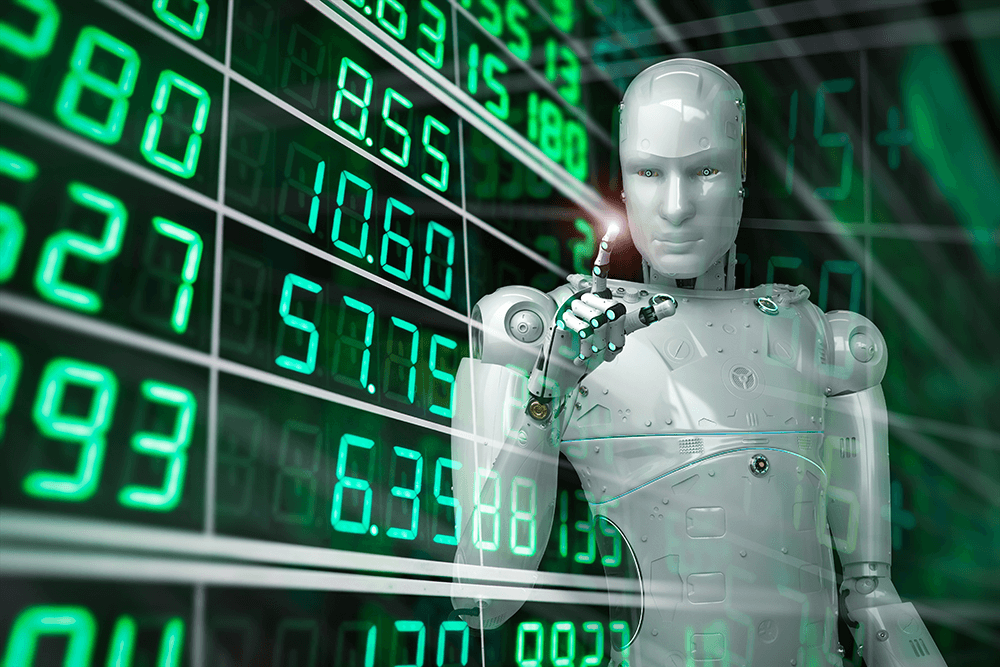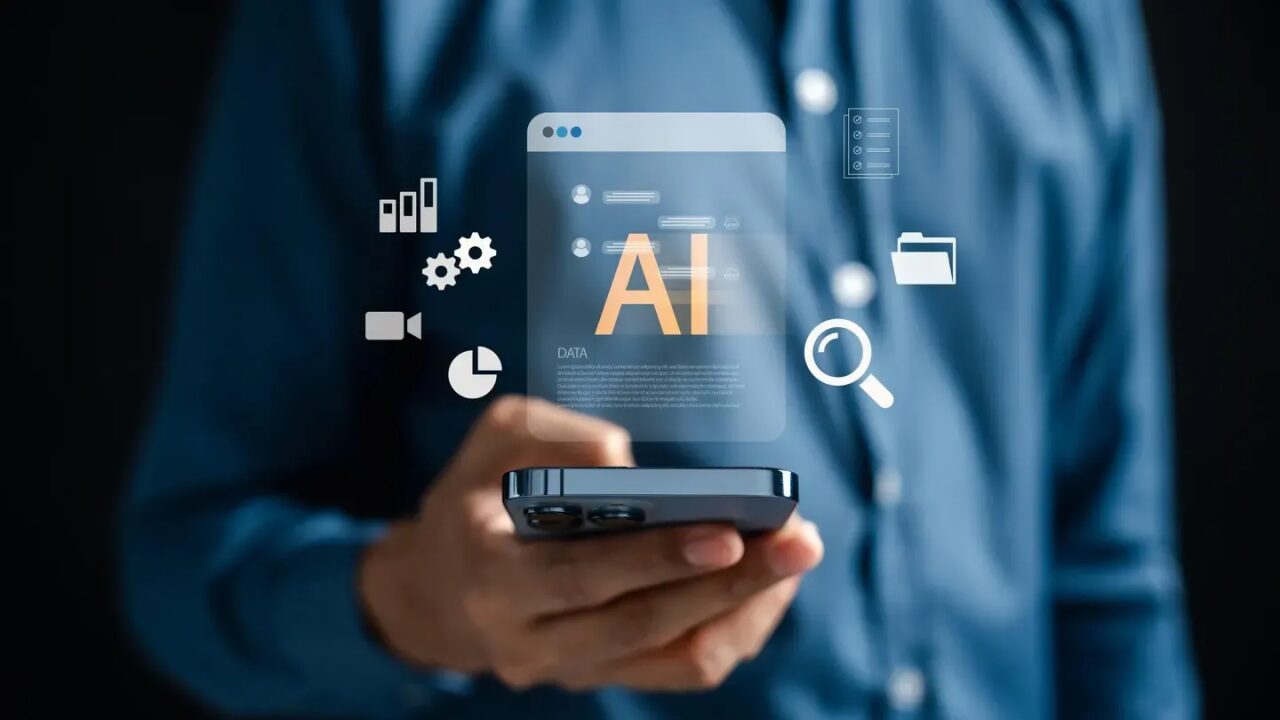The Digital Transformation Of Accounting And Finance – Artificial Intelligence, Robots And Chatbots
2 July 2021
It turns out that we might be at the perfect storm where how we store and access financial information combined with the maturation of tech capabilities are all in place to accelerate the digital transformation of accounting and finance. Just as others who faced the prospect of machines taking over jobs that used to be done by humans, accounting and finance professionals might anticipate the reality of 4th Industrial Revolution with fear. Actually, when machines take over repetitive, time-consuming and redundant tasks, it will free human finance professionals to do higher level and more lucrative analysis and counselling four their clients. Let’s take a look at just of the few opportunities that are now available thanks to the digital transformation of accounting and finance.

Machines Complement Human Brain Power
According to consulting firm Accenture, “automation, minibots, machine learning and adaptive intelligence are becoming part of the finance team at lightning speed.”
As machine learning and artificial intelligence (AI), applications continue to increase and impact accounting and finance responsibilities, the human professionals have an opportunity as well. Not only will they be more productive and proficient, but they will be able to handle more clients and deliver more value because they can determine actionable insight rather than just crunch numbers. Machines will be able to propel innovation in the industry.
Who wouldn’t want to leave bank reconciliations to a machine? Even though machines will become an accounting professional’s most valued colleague in the future, there’s nothing that can replace the emotional intelligence humans bring to the job.
Accounting Tasks Machines Can Do
Not only will machines free up humans to take on other tasks, automating accounting processes will help improve operations and reduce costs. And, since automation will ultimately infiltrate most divisions in a company, financial leaders who embrace the change are gaining expertise that will make them valuable in future business process transformations.
Accounts payable/receivable processing: There are already AI-powered invoice management systems available that can make invoice processing much more streamlined thanks to digital workflows that are implemented. They can learn the accounting codes that are appropriate four each invoice.
Supplier onboarding: Machines can vet new suppliers by checking their credit scores or tax information and set them up in the system without human involvement and even query portals to get all the necessary information.
Procurement: The procurement and purchasing processes four most organisations are filled with paperwork and use different systems and files that are not compatible with one another. As machines through APIs are able to be integrated and the unstructured data is processed, the procurement system will eventually become paperless. Robots are ideally suited to tracking price changes among a number of suppliers.
Audits: Digitalisation of the audit process will help increase its security by allowing a digital trail of when and by whom each file was accessed. Instead of searching file cabinets four the documentation that is required during an audit, auditors will be able to leverage the digital files. A more digital audit improves the efficiency and accuracy of audits and makes an audit of 100% of a company’s financial transactions possible instead of just a sample.
Monthly/quarterly close process: The faster you can get the numbers, the more time your organisation has to think strategically about what to do with the numbers. Machines can post data from a number of sources, consolidate and reconcile it. Not only will your monthly/quarterly close process be speedier, it will also be more accurate thanks to the support of machines in the process.
Expense management: Reviewing and approving expenses to ensure they are compliant with your organisation’s policies is time-consuming four your accounting team. Machines can read receipts, audit expenses and alert humans when a possible infraction has occurred.
AI chatbots: Chatbots are used to efficiently solve common questions or queries from customers including the latest account balances, when certain bills are due, the status on accounts and more.
The key to the digital transformation of accounting and financing is pairing people and machines together allowing each one to contribute in areas they are best skilled at. Machines can efficiently and accurately analyse a tremendous amount of data, they can spot patterns in the data and learn how to treat various kinds of data. With machines taking care of the mind-numbing and monotonous tasks, human accounting and financial professionals will be free to take on tasks they are better suited four.
Related Articles
7 Legal Tech Trends That Will Reshape Every Business in 2026
By now, “smart” versions exist of just about every home appliance, gadget and gizmos we can think of. However, manufacturers continue[...]
8 Skills You Need To Manage The New AI Agent Workforce
By now, “smart” versions exist of just about every home appliance, gadget and gizmos we can think of. However, manufacturers continue[...]
Should AI Have Free Speech?
By now, “smart” versions exist of just about every home appliance, gadget and gizmos we can think of. However, manufacturers continue[...]
5 Amazing AI Agent Use Cases That Will Transform Any Business In 2026
By now, “smart” versions exist of just about every home appliance, gadget and gizmos we can think of. However, manufacturers continue[...]
8 Smartphone Trends That Will Shape 2026
By now, “smart” versions exist of just about every home appliance, gadget and gizmos we can think of. However, manufacturers continue[...]
7 Media Trends That Will Redefine Entertainment In 2026
By now, “smart” versions exist of just about every home appliance, gadget and gizmos we can think of. However, manufacturers continue[...]
Sign up to Stay in Touch!
Bernard Marr is a world-renowned futurist, influencer and thought leader in the fields of business and technology, with a passion for using technology for the good of humanity.
He is a best-selling author of over 20 books, writes a regular column for Forbes and advises and coaches many of the world’s best-known organisations.
He has a combined following of 4 million people across his social media channels and newsletters and was ranked by LinkedIn as one of the top 5 business influencers in the world.
Bernard’s latest book is ‘Generative AI in Practice’.










Social Media